by timbaros
The best films of BFI Flare: London LGBT Film Festival 2017 was always going to be hard to choose. There were so many wonderfully well-done, and in some cases, amazing films that were shown at the film festival – one of the biggest, and best, in the world. There were over 50 features and more than 100 shorts shown, as well as a wide range of special events, guest appearances, discussions, workshops, club nights and more. And while it was virtually impossible to watch all of the features and shorts, I did manage to catch most of them. So herewith is my non-exhaustive list of the best of Flare:
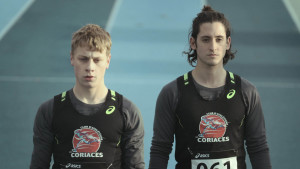
1:54 is an explosive film that stars the excellent Antoine-Olivier Pilon (Mommy) which goes from a simple gay love story to an unexpected and shocking direction. It touches on all the relevant themes (bullying, young love, etc.) and first time director Yan England excellently pulls it all together. A must see!
Pushing Dead, directed and written by Tom E Brown, is a lighthearted comedy about a HIV+ man (a very good James Roday) and his trials and tribulations in getting his medication, finding love, and dealing with his boss and female roommate in San Francisco. It’s bittersweet, funny and lighthearted and will tug at your heart.
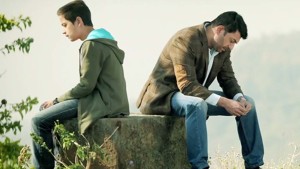
Dear Dad is an excellent Indian film about a middle-aged father who comes out to his son while driving him to boarding school. It’s heartwarming and funny, with great performances all around.
Eight long-term HIV+ survivors discuss their fears, challenges and milestones in the relevant and timely documentary Last Men Standing. With the HIV+ population getting older, these men celebrate life as they remember the past.
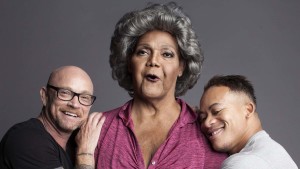
The Trans List is an important documentary where several prominent trans and nonbinary people get to tell their story. Well known celebrities Laverne Cox, Caitlyn Jenner and Buck Angel are featured, but it’s the less well-known who make more of an impact; lawyer and activist Kylar Broadus, teenage student Nicole Maines who won a landmark lawsuit in America after she faced discrimination for wanting to use the girl’s bathroom, and Bamby Salcedo, founder of the Los Angeles-based TransLain Coalition and who faced lots of issues growing up. There are a total of 11 interviews in this documentary, but I could’ve watched a dozen more. It’s an important and relevant documentary.
Southwest of Salem: The Story of the San Antonio Four, another important documentary, is about four Lesbians who were tried and convicted of sexually abusing children in the 1990’s. Fast forward and the women are finally exonerated for their alleged crime, and this documentary shows – through interviews and news footage – the women’s journey of their nightmare. Gripping, and bittersweet.
Chilean film Jesús starts out as a buddy movie where the two young leads hang out with their friends and then have sex with each other, but their lives are changed, and the film takes a surprising turn, when they are involved in a crime. This event will tear their lives apart and the ending packs a wallop!
Lauren (Velinda Godfrey) has to deal with the death of her girlfriend in the film Heartland. She also gets kicked out of the house they shared, so she has to move in with her bigoted mother, while her brother and his long-term girlfriend are visiting in order to set up a local wine business. But Lauren and the girlfriend develop more than a friendship in an event that tears the whole family apart, and brings up bad memories.

Blow Job 2017 is a reimagining of the Andy Warhol classic, directed by Charles Lum and Todd Verow, that, for it’s four full minutes, focuses on David J. White, getting, as you guessed, a blow job. Why remake the 1963 classic? Because it was time to do so, and Lum and Verow do it in an excellent, grainy style.
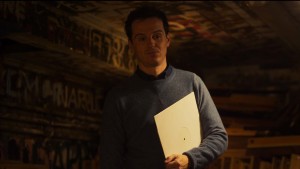
A film with commercial potential is Handsome Devil. Out gay student Ned (a wonderful Fionn O’Shea) is faced with another year in boarding school. His new roommate, lucky for him, is the star rugby player. But most memorable is Andrew Scott who plays a gay and sympathetic teacher. Scott is brilliant (and extremely handsome) as always.
A film that will astound you is the documentary Out of Iraq. It’s amazing that this film was even made as it’s the true story of two Iraqi soldiers who fall in love, but of course, living in a country where gay men are killed is not the ideal place for a gay relationship. So one of them is lucky enough to move to the U.S. and it’s a four year wait for them to be back together. Their long-awaited reunion, and eventual wedding, will leave you in tears.
This was just a few of the highlights of the BFI Flare film festival.
The entire program can still be found in the link below and hopefully some of these films will find their way to the cinema, or to the BFI website, or anywhere online. Let’s support and celebrate gay cinema.
http://www.bfi.org.uk/flare
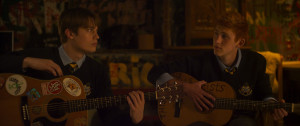 One of the most buzzed about films at London’s recent Flare LGBT Film Festival is getting released this Friday.
One of the most buzzed about films at London’s recent Flare LGBT Film Festival is getting released this Friday.




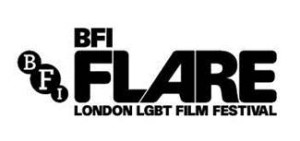 Spring is in the air (almost) and with this comes gay films – and the BFI Flare London LGBT Film Festival.
Spring is in the air (almost) and with this comes gay films – and the BFI Flare London LGBT Film Festival.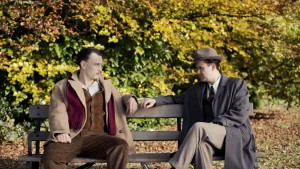
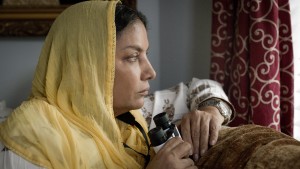
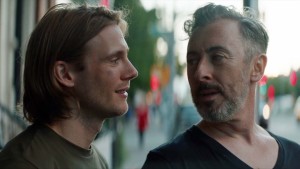
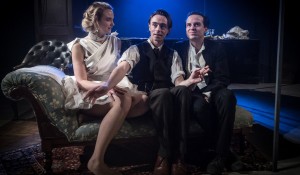 A play about two brothers who need each other to coexist is the plot of the new play The Dazzle.
A play about two brothers who need each other to coexist is the plot of the new play The Dazzle.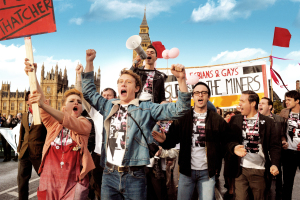 In 1984 a group of gay activists decided to raise money for striking mineworkers, and this is the subject of the new film Pride.
In 1984 a group of gay activists decided to raise money for striking mineworkers, and this is the subject of the new film Pride.




